Filter by
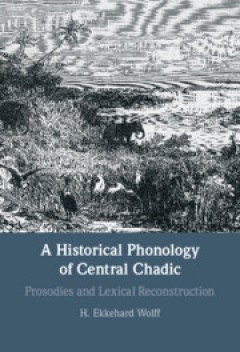
A Historical Phonology of Central Chadic
Of all of the African language families, the Chadic languages belonging to the Afroasiatic macro-family are highly internally diverse due to a long history and various scenarios of language contact. This pioneering study explores the development of the sound systems of the 'Central Chadic' languages, a major branch of the Chadic family. Drawing on and comparing field data from about 60 differen…
- Edition
- -
- ISBN/ISSN
- 9781009024310
- Collation
- -
- Series Title
- -
- Call Number
- -
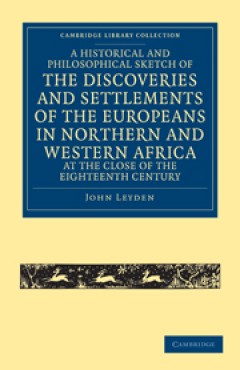
A Historical and Philosophical Sketch of the Discoveries and Settlements of t…
lthough he had never set foot in Africa, Scottish poet and linguist John Leyden (1775–1811) decided to publish in 1799 this compilation on 'discoveries and settlements' there, drawing from the published works of explorers. His aim was 'to exhibit the progress of discoveries at this period in North and West Africa', giving descriptions of places such as Guinea, the Gold Coast, and Sierra Leone…
- Edition
- -
- ISBN/ISSN
- 9781139058759
- Collation
- -
- Series Title
- Cambridge Library Collection - African Studies
- Call Number
- -

A Grammar of the Somali Language With Examples in Prose and Verse, and an Ac…
Somali is one of the Cushitic family of languages spoken in the horn of Africa and the official language of Somalia. This practical grammar, published in 1905, was prepared by J. W. C. Kirk, who first learnt to speak the language during his service with Somali troops during the British Empire's failed attempt in 1902–1904 to wrest control of the region from the Dervish state under Muhammad Ab…
- Edition
- -
- ISBN/ISSN
- 9780511708671
- Collation
- -
- Series Title
- Cambridge Library Collection - Linguistics
- Call Number
- -

Pursuing Justice in Africa Competing Imaginaries and Contested Practices
Pursuing Justice in Africa focuses on the many actors pursuing many visions of justice across the African continent—their aspirations, divergent practices, and articulations of international and vernacular idioms of justice. The essays selected by editors Jessica Johnson and George Hamandishe Karekwaivanane engage with topics at the cutting edge of contemporary scholarship across a wide range…
- Edition
- -
- ISBN/ISSN
- 9780821446485
- Collation
- -
- Series Title
- -
- Call Number
- -

A Geographical Survey of Africa Its Rivers, Lakes, Mountains, Productions, S…
James MacQueen (1778–1870) was a British geographer and also one of the most outspoken critics of the methods of the British anti-slavery campaign in the 1820s and 1830s. Although he never visited Africa, he became an acknowledged expert on the continent, through reading all available accounts, ancient and modern, as well as interviewing slave merchants while managing a sugar plantation in th…
- Edition
- -
- ISBN/ISSN
- 9781139034562
- Collation
- -
- Series Title
- Cambridge Library Collection - African Studies
- Call Number
- -

A Geographical and Commercial View of Northern Central Africa
James MacQueen (1778–1870) was a British geographer fascinated by the problem of the River Niger. He set out to try to establish (on the basis of accounts by explorers, traders and missionaries), that one and the same river flowed continuously through Africa and into the Atlantic Ocean, thus challenging long-established beliefs that African rivers either disappeared into the sand or terminate…
- Edition
- -
- ISBN/ISSN
- 9781139034579
- Collation
- -
- Series Title
- Cambridge Library Collection - African Studies
- Call Number
- -
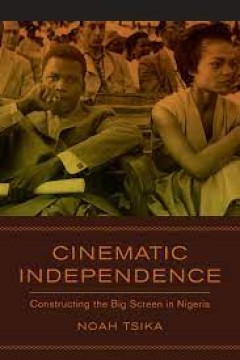
Cinematic Independence Constructing the Big Screen in Nigeria
Cinematic Independence traces the emergence, demise, and rebirth of big-screen film exhibition in Nigeria. Film companies flocked to Nigeria in the years following independence, beginning a long history of interventions by Hollywood and corporate America. The 1980s and 1990s saw a shuttering of cinemas, which were almost entirely replaced by television and direct-to-video movies. However, after…
- Edition
- -
- ISBN/ISSN
- 9780520386105
- Collation
- -
- Series Title
- -
- Call Number
- -
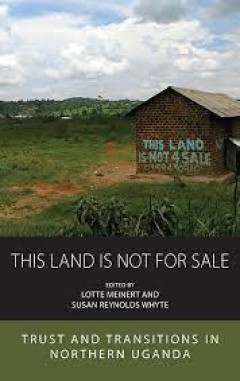
This Land Is Not For Sale Trust and Transitions in Northern Uganda
Although violent conflict has declined in northern Uganda, tensions and mistrust concerning land have increased. Residents try to deal with acquisitions by investors and exclusions from forests and wildlife reserves. Land wrangles among neighbours and relatives are widespread. The growing commodification of land challenges ideals of entrustment for future generations. Using extended case studie…
- Edition
- -
- ISBN/ISSN
- 9781805390473
- Collation
- -
- Series Title
- -
- Call Number
- -

A Dictionary of the Suahili Language With Introduction Containing an Outline…
Johan Ludwig Krapf (1810–81), a German-born member of the Church Missionary Society in East Africa, is regarded as the founder of Swahili studies in Europe. Having pursued an interest in Oriental culture from an early age, he first went to Abyssinia (Ethiopia) as a missionary. During his travels in Africa, he became the first European to see Mount Kenya; but he also considered the potential o…
- Edition
- -
- ISBN/ISSN
- 9781139207126
- Collation
- -
- Series Title
- Cambridge Library Collection - Linguistics
- Call Number
- -
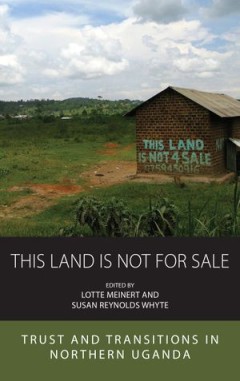
This Land Is Not For Sale : Trust and Transitions in Northern Uganda
Although violent conflict has declined in northern Uganda, tensions and mistrust concerning land have increased. Residents try to deal with acquisitions by investors and exclusions from forests and wildlife reserves. Land wrangles among neighbours and relatives are widespread. The growing commodification of land challenges ideals of entrustment for future generations. Using extended case studie…
- Edition
- -
- ISBN/ISSN
- 9781805390473
- Collation
- -
- Series Title
- -
- Call Number
- -
 Computer Science, Information & General Works
Computer Science, Information & General Works  Philosophy & Psychology
Philosophy & Psychology  Religion
Religion  Social Sciences
Social Sciences  Language
Language  Pure Science
Pure Science  Applied Sciences
Applied Sciences  Art & Recreation
Art & Recreation  Literature
Literature  History & Geography
History & Geography